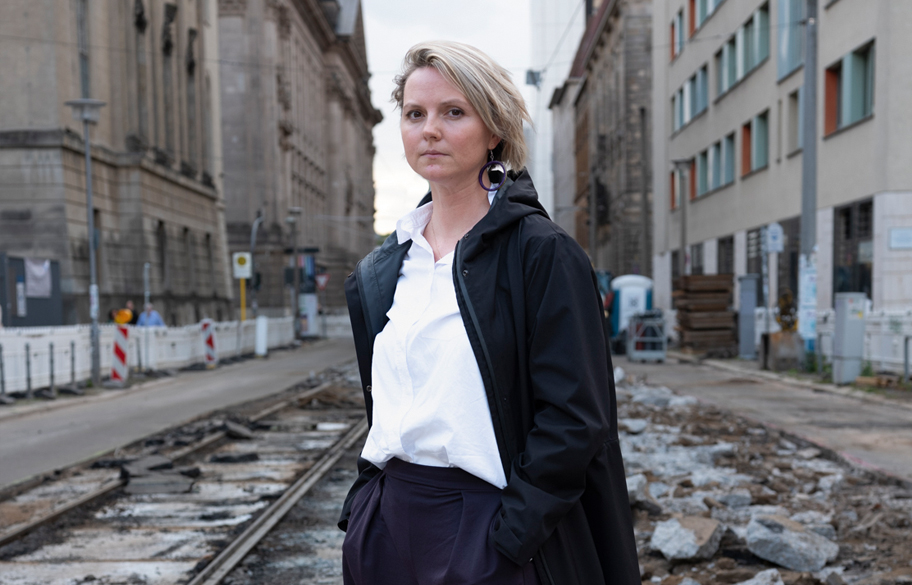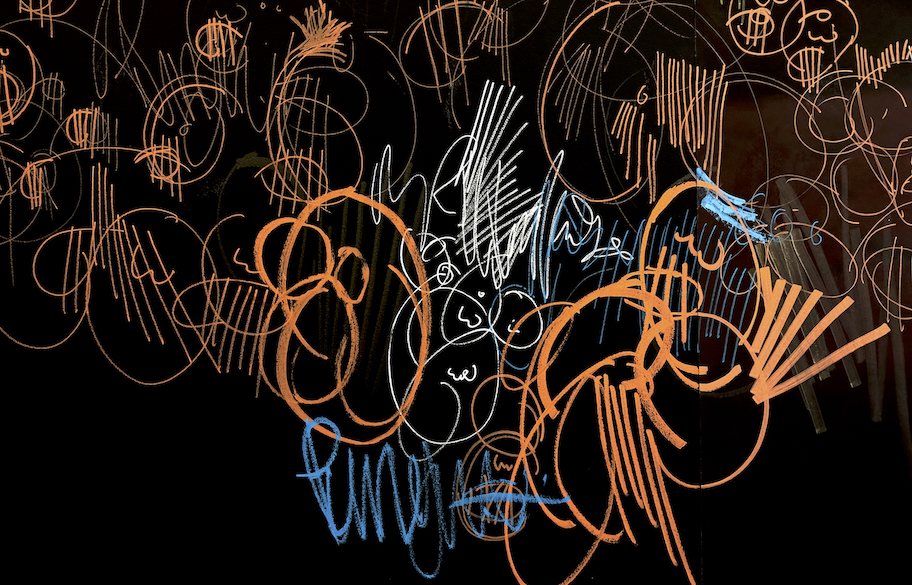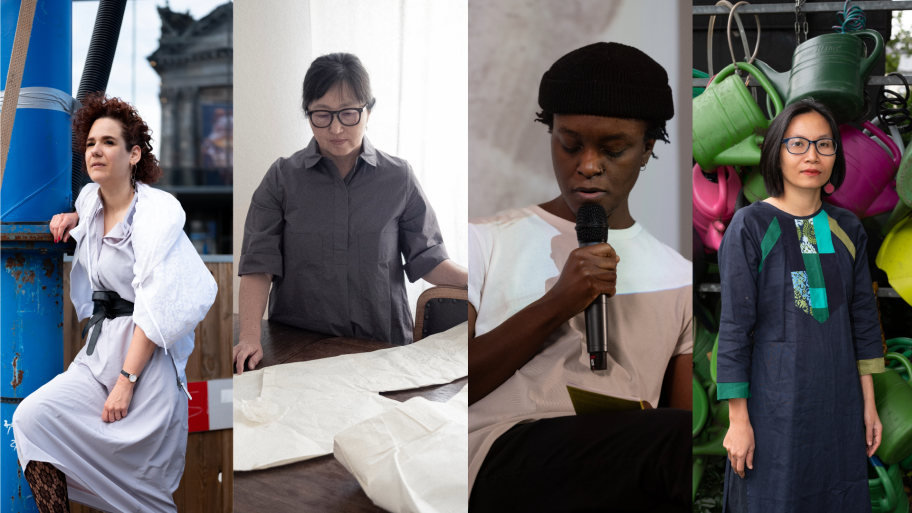Belarus, Literature, 2022
Volha
Hapeyeva

If Volha Hapeyeva were asked to name her place of residence, she would probably find the question difficult to answer. Since leaving Minsk several years ago, she has lived in different places, but has always been committed to one thing: poetry. It is no coincidence that the highly acclaimed essay for which she won the WORTMELDUNGEN Ulrike Crespo Literaturpreis in 2022 is titled Die Verteidigung der Poesie in Zeiten dauernden Exils (A Defense of Poetry in Times of Perpetual Exile). In this essay, Hapeyeva writes about nomadic thinking and about trying on “different life costumes.” She also repeatedly emphasizes that language is “never neutral, never objective,” and is in fact “always political.” Born in 1982, Hapeyeva had plenty of opportunities to experience this for herself when she lived in Belarus under its totalitarian regime; as a result, she learned to distinguish between the ideological, propagandistic language of the political regime and the language of everyday life.
Hapeyeva studied comparative linguistics in Minsk, with a strong focus on gender issues in culture and literature. Her journey to feminist self-awareness and creativity was not an easy one. In her laconic and melancholy memoir Camel Travel (2019), Hapeyeva describes how, by emancipating herself from the patriarchal and socialist-influenced Belarusian society, she found herself. Adopting a variety of perspectives and approaches, her poems address the process of finding one’s identity through one’s own body and individual language. Numerous volumes of Hapeyeva’s poetry have been published in her native Belarusian, including Чорныя макі (Black Poppies, 2018), Граматыка снегу (The Grammar of Snow, 2017), Прысак і пожня (Embers and Stubble, 2012), Метад муаравых крэсак (Moiré Fringe Method, 2012), and Няголены ранак (Unshaven Morning, 2008), while the volume In My Garden of Mutants (trans. Anne Rutherford, 2021) offers an introduction to her lyrical oeuvre in English translation. Hapeyeva’s creation of subjectivity through language is particularly striking; it is an emphatically female language “in the sense of an energy that is strong but not aggressive, that knows compassion and empathy,” as Mathias Göritz writes in the afterword to the German edition.
Hapeyeva’s highly original metaphors and provocative linguistic contortions undermine prevailing norms. At the end of the very moving poem Black Apple Tree, for instance, about a woman who translates letters from women who have gone missing or been killed in war, we read: “you don’t receive a medal / if you are unsure whether to shoot or not / if you show compassion / for those on your own side but also for the enemy forces / if you let your own child drown so others can be saved / if you take care of a stranger’s husband / if you hang yourself from the black apple tree / in the name of the mother, the daughter, and the holy ghostess.” The familiar liturgical blessing is given a surprising twist here, just as war and heroism are given a completely new connotation.
Volha Hapeyeva’s poems are existential and subversive, precise and full of physical metaphors. They encourage critical reflection and subject language to careful scrutiny. In the above-mentioned essay, Hapeyeva writes that for her, poetry is a means of “expressing empathy and disseminating education”— a form of education “that teaches us to be human and to see the humanity in others, regardless of their age, sex, or skin color. That is an antidote to violence and hate.” It therefore comes as no surprise when Hapeyeva concludes that her “home” is poetry.
Text: Ilma Rakusa
Translation: Jacqueline Todd
Kemel-trevel
Halijafy, Minsk, 2019
Samota, što žyla ŭ pakoi nasuprac
Halijafy, Minsk, 2021
In My Garden of Mutants
Arc Publications, Todmorden, 2021 (transl. Annie Rutherford)
Paradox Niemaulia
Halijafy, Minsk, 2022





